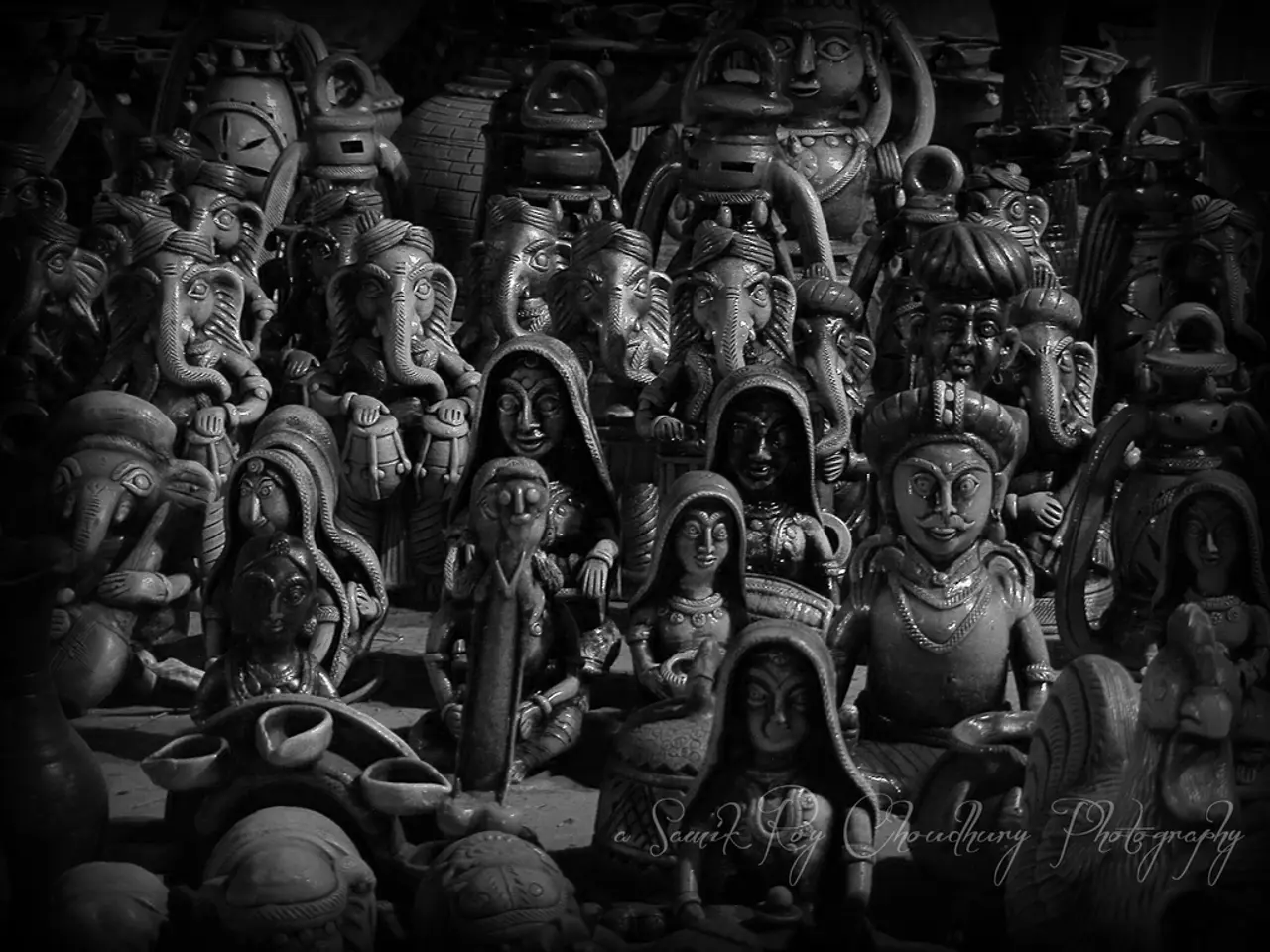Politicians should raise the bar... Opposition needs introspection for revival: Ashwani Kumar (Revised)
In the vibrant democracy of India, the Congress Party and the INDIA Bloc, a coalition of opposition parties, face a complex web of challenges as they navigate both external geopolitical-economic pressures and internal political dynamics.
For the Congress Party:
The escalating US tariffs on Indian goods, notably a recent 50% tariff on Indian oil imports, pose a significant challenge. The Congress Party has been critical of the Modi government's handling of foreign policy in this context, framing the tariffs as a diplomatic failure that risks key economic sectors and bilateral ties. This tariff challenge pressures Congress to position itself as capable of better managing foreign relations and trade impacts.
Internally, the Congress Party is trying to revive its political fortunes, particularly through Rahul Gandhi's leadership during the "Voter Adhikar Yatra" in Bihar. This campaign aims to address electoral roll discrepancies and reconnect with grassroots voters, boosting Congress morale and visibility. However, analysts note this revival might overshadow regional parties like the RJD and complicate alliance dynamics within the INDIA Bloc.
For the INDIA Bloc:
The coalition faces challenges in managing state-level politics and electoral strategies amid government proposals like "One Nation, One Election." While this proposal aims to streamline electoral processes and reduce costs, it could also reshape political campaign dynamics, possibly affecting the INDIA Bloc’s campaign organization and focus.
The INDIA Bloc must also navigate internal competition and seat-sharing tensions, particularly with rising leaders like Rahul Gandhi asserting influence in key states such as Bihar, potentially unsettling regional allies.
Summary Table of Key Challenges:
| Challenge Area | Congress Party | INDIA Bloc | |------------------------------|----------------------------------------|-----------------------------------| | Foreign Policy & Economy | Criticism of government over US tariffs damaging exports and diplomacy[1] | Coalitional positioning on trade/foreign policy less direct | | Electoral Strategy | Rahul Gandhi’s grassroots campaigns to regain voter trust; risk of overshadowing regional allies[2] | Managing seat-sharing and leadership tensions with emerging Congress influence[2] | | Structural Political Reform | Responding to government’s simultaneous elections proposal and its impact on campaign strategy[3] | Adapting to potential shifts in election timing and campaigning norms[3] |
As the 2027 Punjab elections approach, the BJP is expected to increase its presence and vote percentage in the region. Meanwhile, the Indian government has maintained a balance in its strategic ties with Israel without compromising on its belief in a justly negotiated peace process in Gaza and Ukraine.
In this ever-evolving political landscape, the need for a refreshing direction in the nation's politics becomes increasingly apparent. A collective inspirational leadership and an overhaul of the electoral system based on active participation of informed citizens are essential for a healthier democracy. The political intelligentsia and thinkers must step out of their comfort zones to provide this direction. Simultaneously, the Opposition must recognize the futility of compulsive criticism of the government and the PM, which has proven to be counter-productive. Instead, they should focus on offering better alternatives and fostering social harmony to counter the seeds of social disharmony sown by the "othering" of minorities.
Read also:
- Court petitions to reverse established decision on same-sex marriage legalization
- Commemoration of 200 Days of American Resurgence Unveiled
- Minister Bärbel Bas expresses doubts about her tenure as a minister following a recent interview during the summer.
- A Tale of Two RussiansGate Notable Figures: Focus on Mike Davis








